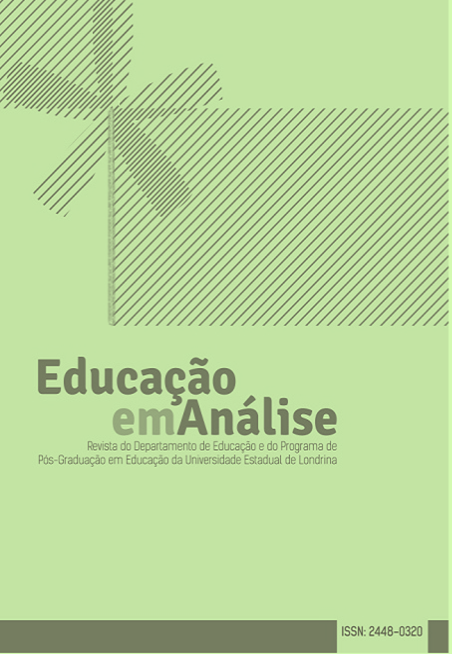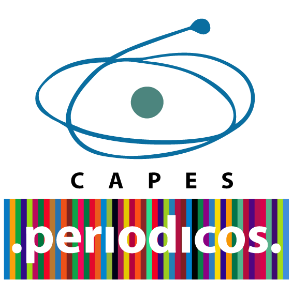The place of digital technologies in teaching work in times of remote teaching
DOI:
https://doi.org/10.5433/1984-7939.2021v6n1p179Keywords:
Teaching Work, Digital technologies, Remote teachingAbstract
In view of the scenario determined by COVID-19, teachers found themselves impelled to use digital technologies in their pedagogical practices. Thus, the objective of this study was to identify and analyze the relationships established with TDIC by teachers from Early Childhood Education to Higher Education, in a pedagogical context determined by the health conditions of COVID-19. The research took a quali-quantitative approach. As study participants, we have eighty-four teachers from five regions of the country. The data show that the pandemic moment eased and imposed the use of digital technologies in the teaching and learning process, without the teacher having initial or continuous training for the insertion of these resources in his practices. Despite this, we observed that this situation led to a reflection on whether to consider the current determinants, especially digital technologies, in teaching practices from a critical perspective and linked to the integral education of the student.
Downloads
References
BARDIN, Laurence. Análise de conteúdo. Lisboa: Edições 70, 1977.
BAYNE, Siân; ROSS, Jen. The "digital native" and "digital immigrant": a dangerous opposition. In: ANNUAL CONFERENCE OF THE SOCIETY FOR RESEARCH INTO HIGHER EDUCATION. London: SRHE, 2007. p. 1-6.
BOTTENTUIT JUNIOR, João Batista; LISBÔA, Eliana Santana; COUTINHO, Clara Pereira. Podcast e Vodcast: o potencial da ferramenta VoiceThread. In: CARVALHO, A. A. A. (org.). Actas do encontro sobre podcasts. Braga: CIEd, 2009. p. 281-288. Disponível em: http://w3.ufsm.br/carmen/Objeto/Conteudo_html/oa/Arquivos/S05.pdf. Acesso em: 03 mar. 2021.
CLARK, Andy. Mindware: an introduction to the philosophy of cognitive science. New York: Oxford University Press, 2001.
COLL, César; MAURI, Teresa; ONRUBIA, Javier. A incorporação das tecnologias da informação e da comunicação na educação: do projeto técnico-pedagógico às práticas de uso. In: COLL, César; MONEREO, Carles (org.). Psicologia da educação virtual: aprender e ensinar com as tecnologias da informação e da comunicação. Porto Alegre: Artmed, 2010. p. 66-93.
COLL, César; MONEREO, Carles. Educação e aprendizagem no século XXI: novas ferramentas, novos cenários, novas finalidades. In: COLL, Carles (org.). Psicologia da educação virtual: aprender e ensinar com as tecnologias da informação e da comunicação. Porto Alegre: Artmed, 2010. p. 15-46.
CONTRERAS, José. A autonomia dos professores. São Paulo: Cortez, 2002.
DUARTE, Rosália. et al. O papel da escola no desenvolvimento de habilidades cognitivas no uso de mídias digitais. In: ENCONTRO NACIONAL DE DIDÁTICA E PRÁTICAS DE ENSINO - ENDIPE, 16., 2012, Campinas. Anais [...]. Campinas: FE/UNICAMP, 2012. p. 124- 139. Disponível em: http://endipe.pro.br/ebooks-2012/0083s.pdf. Acesso em: 6 mar. 2021.
LÉVY, Pierre. A inteligência coletiva: por uma antropologia do ciberespaço. 5. ed. São Paulo: Ed. Loyola, 2007.
LÉVY, Pierre. As Tecnologias da Inteligência: o futuro do pensamento na era da informática. Rio de janeiro: Editora 34, 1994.
LÉVY, Pierre. Cibercultura. Tradução de Carlos Irineu da Costa. 3ª ed. São Paulo: Editora 34, 2010.
MAMEDE-NEVES, Maria Apparecida Campos; DUARTE, Rosalia. O contexto dos novos recursos tecnológicos de informação e comunicação e a escola. Educ. Soc., Campinas, v. 29, n. 104, p. 769-789, out. 2008. Disponível em: https://www.scielo.br/pdf/es/v29n104/a0729104.pdf. Acesso em: 12 fev. 2021.
MARCONI, Marina de Andrade; LAKATOS, Eva Maria. Fundamentos de metodologia científica. 5. ed. São Paulo: Atlas, 2003.
MARTINS, Luana T.; CASTRO, Lúcia R. de. Crianças na contemporaneidade: entre as demandas da vida escolar e da sociedade tecnológica. Revista Latinoamericana de Ciencias Sociales, Niñez y Juventud, Manizales, v. 2, n. 9, p. 619-634, jul./dez. 2011. Disponível em: https://www.redalyc.org/articulo.oa?id=77321592010. Acesso em: 6 mar. 2021.
MINAYO, Maria Cecília de Souza. O desafio do conhecimento: pesquisa qualitativa em saúde. 8. ed. São Paulo: Hucitec, 2004.
MINAYO, Maria Cecilia de S.; SANCHES, Odécio.Quantitativo-qualitativo: oposição ou complementaridade?. Cadernos de Saúde Pública, Rio de Janeiro, v. 9, n. 3, p. 239-248, jul./set. 1993. Disponível em: https://www.scielo.br/pdf/csp/v9n3/02.pdf. Acesso em: 4 mar. 2021.
MOREIRA, Antonio Flavio Barbosa; KRAMER, Sonia. Contemporaneidade, educação e tecnologia. Educ. Soc., Campinas, v. 28, n. 100, p. 1037-1057, out. 2007. Disponível em: https://www.scielo.br/pdf/es/v28n100/a1928100.pdf. Acesso em: 6 mar. 2021.
NOVELLI, Valéria Aparecida Moreira; HOFFMANN, Wanda Aparecida Machado; GRACIOSO, Luciana de Souza. Reflexões sobre a mediação da informação na perspectiva dos usuários. Biblionline, João Pessoa, v. 7, n. 1, p. 3-10, 2011. Disponível em: https://brapci.inf.br/_repositorio/2011/09/pdf_d53b48d270_0018736.pdf. Acesso em: 6 mar. 2021.
PRENSKY, Marc. Digital natives, digital immigrants. On Horizon, [S. l.], v. 9, n. 5, p. 1-6, out. 2001. Disponível em: https://www.marcprensky.com/writing/Prensky%20-%20Digital%20Natives,%20Digital%20Immigrants%20-%20Part1.pdf. Acesso em: 6 mar. 2021.
SELWYN, Neil. The digital native - myth and reality. Aslib proceedings: new Information perspectives, London, v. 61, n. 4, p. 364-379, 2009. Disponível em: http://tefkos.comminfo.rutgers.edu/Courses/Zadar/Readings/Selwyn%20dig%20natives, %20Aslib%20Proceedings%202009.pdf. Acesso em: 5 mar. 2021.
TAPSCOTT, Don. A hora da geração digital: como os jovens que cresceram usando a internet estão mudando tudo, das empresas aos governos. Rio de Janeiro: Agir Negócios, 2010.
TRIVIÑOS, Augusto Nibaldo Silva. Introdução à pesquisa em ciências sociais: a pesquisa qualitativa em educação. São Paulo: Atlas, 1987.
VYGOTSKY, Lev Semenovich. A formação social da mente: o desenvolvimento dos processos psicológicos superiores. São Paulo: Martins Fontes, 1998.
VYGOTSKY, Lev Semenovich. Pensamento e linguagem. São Paulo: Martins Fontes, 1996.
Downloads
Published
How to Cite
Issue
Section
License
Copyright (c) 2021 Educação em Análise

This work is licensed under a Creative Commons Attribution 4.0 International License.
Os artigos publicados na Revista Educação em Análise estão sob a Licença Creative Commons Atribuição 4.0 Internacional, garantindo Acesso Aberto. Deste modo, os autores mantêm os direitos autorais de seus trabalhos e, em caso de republicação, solicita-se que indiquem a primeira publicação nesta revista. Essa licença permite que qualquer pessoa leia, baixe, copie e compartilhe o conteúdo, desde que a devida citação seja feita. Além disso, autoriza a redistribuição, adaptação e criação de obras derivadas em qualquer formato ou meio, incluindo uso comercial, desde que a atribuição à revista seja mantida.
A revista se reserva o direito de efetuar, nos originais, alterações de ordem normativa, ortográfica e gramatical, com vistas a manter o padrão culto da língua e a credibilidade do veículo. Respeitará, no entanto, o estilo de escrever dos autores. Alterações, correções ou sugestões de ordem conceitual serão encaminhadas aos autores, quando necessário.
As opiniões emitidas pelos autores dos artigos são de sua exclusiva responsabilidade.
























